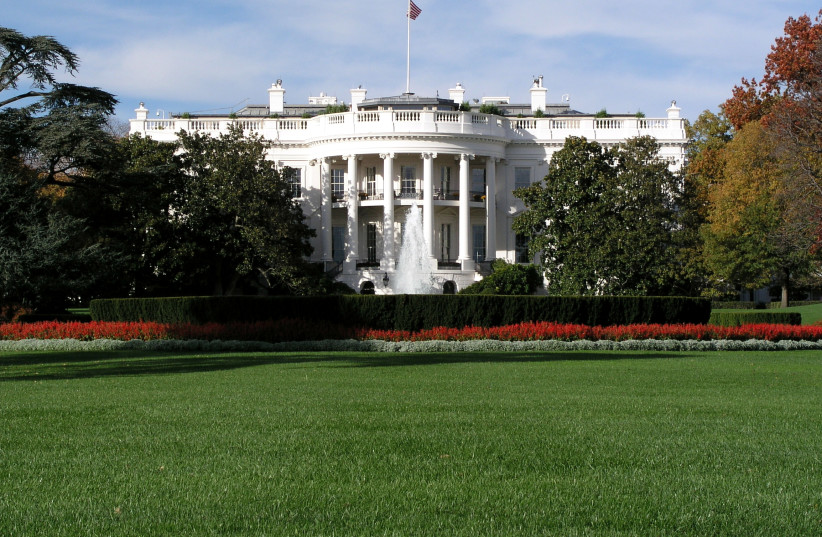Two former United States State Department officials are circulating a proposal for an Israeli-Arab deal that requires Israel to implement a policy that resembles apartheid. Sounds unbelievable? Let’s take a closer look.
The proposal comes in the form of an op-ed in the online publication The Hill, by former US Mideast envoy Dennis Ross and David Makovsky, who was the right-hand man to another American envoy to the region, Martin Indyk.
Ex-State Department officials, such as Ross and Makovsky, now comfortably situated at a Washington, DC, think tank, periodically circulate proposals for imaginary Arab-Israeli peace agreements.
Of course, the ex-State Department crowd has been proven wrong time and again – note the lack of Arab-Israeli peace despite decades of one-sided Israeli concessions. So, one might argue that their latest retread of such a proposal hardly merits attention.
But the reality of Washington policymaking is that US government officials take the think tankers more seriously than they deserve, especially when they are ex-State Department officials with presumed expertise in the topic. Sometimes the close connections between current and former State Department officials result in the circulation of proposals that amount to trial balloons. They test the atmosphere by publishing op-eds and watching the reactions.

And when the authors of the op-ed happen to be Jewish, it provides a veneer of credibility, as in “We’re Jewish, so we couldn’t possibly be suggesting something that would harm Israel.” That alone often gives their proposals some initial traction.
So, yes, the new Ross-Makovsky op-ed deserves at least a few minutes of our time.
Proposals from ex-State Department officials invariably are based on Israel making tangible and essentially irreversible concessions, in exchange for some easily reversible gesture from the Arab side. The new Ross-Makovsky proposal is cut from the same mold.
It should be noted that Ross and Makovsky are more moderate in their tone than some of their ex-colleagues. Many ex-State Department officials are knee-jerk critics of any agreement that seems to benefit Israel too much. Those officials resent the Abraham Accords because they involved some Arab countries recognizing Israel without Israel surrendering to demands for a Palestinian state.
Ross and Makovsky, by contrast, take a different approach. They praise whatever has been done previously, including the Abraham Accords, and then try to build on them as a means for facilitating new Israeli concessions.
Thus, in their op-ed in The Hill, Ross and Makovsky argue that the willingness of Bahrain and the United Arab Emirates to recognize Israel gives the Palestinian Arabs’ advocates new leverage. “Ties with the Arabs give Israel something to lose,” they contend.
What exactly are they saying?
THEY POINT out that Morocco’s limited ties with Israel enabled it to pressure Israel to make a recent concession on allowing Palestinian Arabs to enter the country. They also emphasize that the UAE made its recognition of Israel contingent on Israel not annexing any part of Judea-Samaria.
“Other Arab states could offer variations of this model,” Ross and Makovsky propose. Specifically, “the Saudis could offer to open a commercial trade office in Tel Aviv... for this, they could ask the Israelis to stop building to the east of the security barrier in the West Bank, meaning Israel would not build on 92% of the West Bank.”
Opening a trade office is one of the most reversible gestures imaginable. Remember that in early 1995, Morocco opened a trade office in Tel Aviv. That was touted as one of the concrete benefits to Israel from the Oslo accords.
When the Arab terror war against Israel known as the Second Intifada erupted in 2000, the Moroccans shut down their Tel Aviv presence as a gesture of solidarity with the suicide bombers who were slaughtering Israelis almost daily. So, when Ross and Makovsky now propose that the Saudis open a Tel Aviv office, forgive me for not being too impressed.
By contrast, if Israel were to agree to stop building in 92% percent of its historic homeland, Judea-Samaria, it would be almost irreversible. That’s because the minute Israel would try to resume any construction, there would be an international uproar and threats of sanctions that would likely force any Israeli government to back down.
Apartheid ties
What does apartheid have to do with all this? Well, Ross and Makovsky, like all decent human beings, surely opposed apartheid in South Africa. Yet, what they are proposing is, in fact, a form of that same odious system of government, this time transplanted to the Middle East.
Notice that they are not proposing that both Israel and the Palestinian Authority should halt all construction in 92% of Judea-Samaria. They want only Israel to stop building there: No new houses, no new apartments, no new construction of any kind – for Jews only. They don’t propose any limits whatsoever on Arab construction in the same territories.
One law for Jews, one law for Arabs: Jews prohibited from building; Arabs permitted to build. How different is that from the old South African apartheid system? It’s different laws for different ethnic groups.
Ross and Makovsky can use all the pleasant catchphrases they want. They can try to mask what they are proposing with terms like peace and coexistence. But the stark reality is that they are proposing different standards and different laws based on ethnicity. That’s painfully like apartheid. And every decent person should reject it.
The writer, an attorney, is the father of Alisa Flatow, who was murdered in an Iranian-sponsored Palestinian terrorist attack in 1995. He is the author of A Father’s Story: My Fight for Justice Against Iranian Terrorism.
